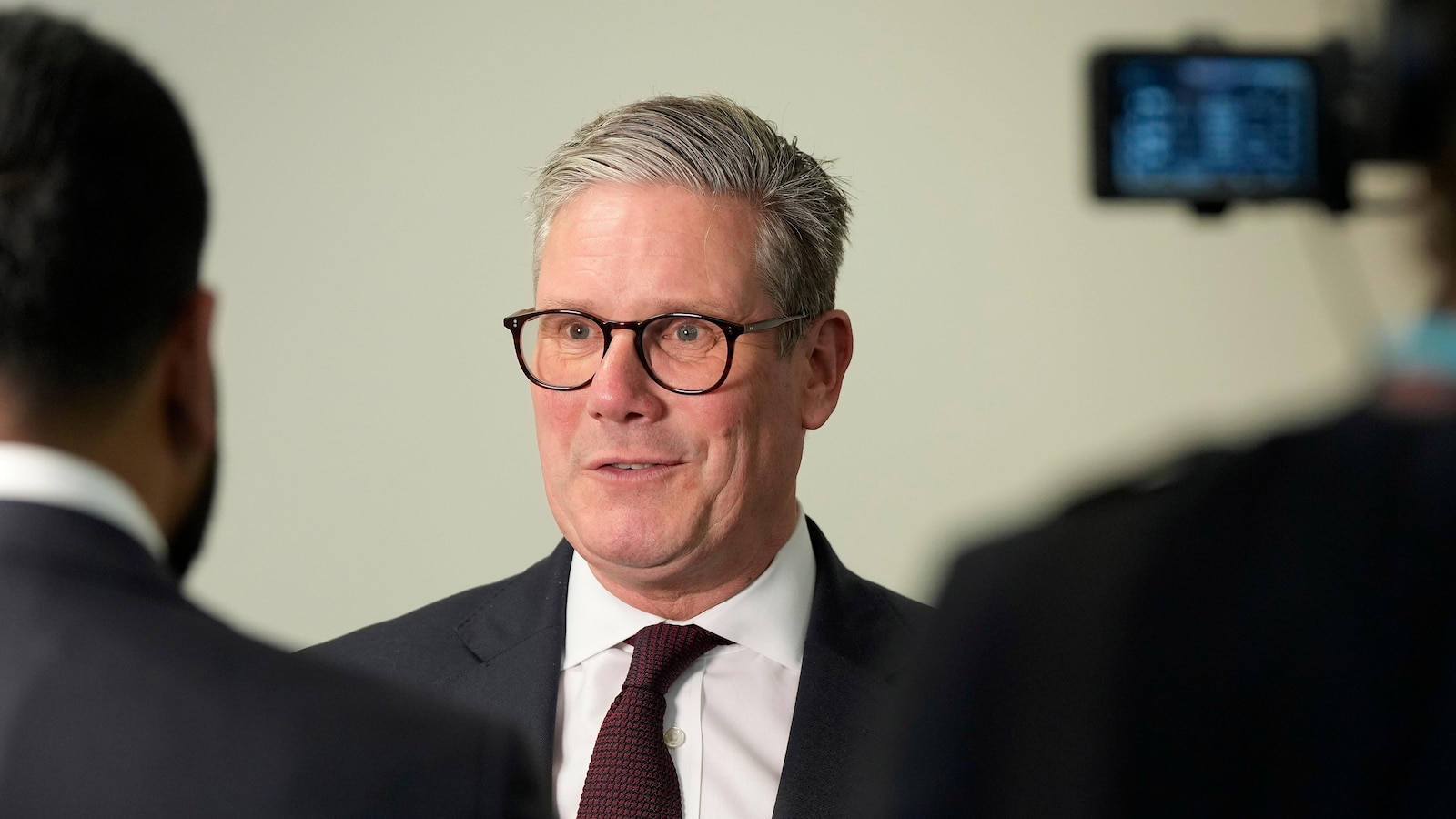
LONDON — Britain’s new Labour Party government campaigned on a promise to bring bold change at modest cost. Prime Minister Keir Starmer gets a chance to show how he aims to reconcile those two aims on Wednesday when the government announces its plans for the coming year.
Starmer said the measures announced in the King’s Speech to Parliament would “take the brakes off Britain” and “create wealth for people up and down the country” by spurring economic growth.
The King’s Speech is the centerpiece of the State Opening of Parliament, an occasion where royal pomp meets hard-nosed politics, as King Charles III dons a diamond-studded crown, sits on a gilded throne and announces the government’s legislative agenda.
Starmer said the speech would be a “down payment on our plans for the next five years,” which center on getting the U.K.’s stuttering economy growing strongly.
Labour won a landslide election victory on July 4 as voters turned on the Conservatives after years of high inflation, ethics scandals and a revolving door of prime ministers. Starmer has promised to patch up the country’s aging infrastructure and frayed public services, but says he won’t raise personal taxes and insists change must be bound by “unbreakable fiscal rules.”
The government said Wednesday’s speech will include more than 35 bills – the Conservatives’ last speech had just 21 – ranging from housebuilding to nationalizing Britain’s railways and decarbonizing the nation’s power supply with a publicly owned green energy firm.
“It looks like it’s going to be very ambitious and very wide-ranging,” said Jill Rutter, senior research fellow at the Institute for Government think tank.
There will be moves to give more powers to local government, and a law to ensure all government budgets get advance independent scrutiny. Rutter called that the “anti- Liz Truss bill,” referring to the Conservative prime minister whose package of unfunded tax cuts in 2022 rocked the British economy and ended her brief term in office.
Also expected are new measures to strengthen border security, following on from Starmer’s decision to scrap the Conservatives’ plan to send people arriving in the U.K. across the English Channel on a one-way trip to Rwanda. The contentious scheme faced multiple legal challenges and cost the U.K. several hundred million pounds (dollars), without a single flight taking off.
There is also expected to be a law regulating the development of artificial intelligence, a possible break from the previous government’s light-touch approach to governing AI.
The government may also announce significant changes to the U.K.’s political system, including lowering the voting age from 18 to 16, one of Labour’s election promises.
It might even tackle an issue that has foxed previous governments: reforming the House of Lords. The unelected upper chamber of Parliament is packed with almost 800 members – largely lifetime political appointees, with a smattering of judges, bishops and hereditary aristocrats. Starmer has said he would like to remove the hereditary nobles and set a Lords retirement age of 80.
While much of Starmer’s agenda marks a break with the defeated Conservative government of former Prime Minister Rishi Sunak, Starmer may revive Sunak’s plan to stop future generations from smoking by gradually raising the minimum age for buying tobacco.
Wednesday’s address is the second such speech delivered by Charles since the death of his mother, Queen Elizabeth II, in September 2022. For all its royal trappings – including lords in ermine-trimmed robes and an official known as Black Rod — it is the King’s Speech in name only.
“The king has zero agency in this,” Rutter said.
The UK’s new Labour government has recently unveiled ambitious plans to boost economic growth in the country. With a focus on creating jobs, increasing productivity, and supporting businesses, the government aims to stimulate the economy and improve the standard of living for all citizens.
One of the key initiatives of the government is to invest in infrastructure projects across the country. This includes funding for new roads, railways, and other transportation networks, as well as improvements to schools, hospitals, and other public services. By investing in infrastructure, the government hopes to create jobs in construction and related industries, while also improving the overall efficiency and competitiveness of the economy.
In addition to infrastructure investment, the government is also planning to support small and medium-sized businesses through a range of measures. This includes providing access to finance, reducing red tape and bureaucracy, and offering training and support for entrepreneurs. By supporting small businesses, the government aims to stimulate innovation and entrepreneurship, which are key drivers of economic growth.
The government is also committed to investing in education and skills training to ensure that the workforce is equipped with the necessary skills to compete in the global economy. This includes funding for vocational training programs, apprenticeships, and higher education initiatives. By investing in education and skills training, the government hopes to increase productivity and competitiveness, while also reducing unemployment and poverty.
Overall, the government’s plans to boost economic growth are ambitious and wide-ranging. By investing in infrastructure, supporting small businesses, and investing in education and skills training, the government aims to create a more prosperous and inclusive economy for all citizens. With a focus on job creation, productivity growth, and innovation, the government’s plans have the potential to drive long-term economic growth and improve the standard of living for all UK citizens.


